Revitalize Your Kitchen: Resurfacing Laminate Countertops
In terms of kitchen renovations, the countertop is often a focal point, dictating both the aesthetic and functionality of the space. While replacing countertops can be a costly and time-consuming endeavor, resurfacing laminate kitchen countertops offers a budget-friendly and efficient alternative to breathe new life into your kitchen. In this guide, we’ll discuss the process of resurfacing laminate countertops, explore its benefits, discuss design options, and provide tips for maintenance and care.

Understanding the Resurfacing Process
Resurfacing laminate countertops involves applying a new surface material directly over the existing laminate to create a fresh and updated look. This process eliminates the need for costly demolition and replacement, making it an ideal solution for homeowners looking to refresh their kitchens on a budget. The resurfacing material, typically a thin layer of stone, concrete, or epoxy, is applied directly over the laminate surface and sealed to create a durable and attractive finish.
One of the primary advantages of resurfacing laminate countertops is its affordability and efficiency compared to traditional countertop replacement. Resurfacing can be completed in a fraction of the time and cost of replacement, allowing homeowners to achieve a new look for their kitchen without breaking the bank. Additionally, resurfacing allows for greater flexibility in design options, as homeowners can choose from a wide range of colors, textures, and finishes to suit their personal style and aesthetic preferences.

Exploring Design Options
Resurfacing laminate countertops opens up a world of design possibilities, allowing homeowners to customize their kitchen countertops to match their unique taste and style. Some popular design options for resurfaced laminate countertops include:
- Faux Stone Finishes: Achieve the look of natural stone such as granite or marble with faux stone finishes applied during the resurfacing process. These finishes mimic the texture and appearance of real stone, adding a touch of luxury to your kitchen without the hefty price tag.
- Concrete Overlay: Concrete overlays offer a modern and industrial aesthetic, with the ability to customize colors, patterns, and textures to create a unique look for your countertops. Concrete overlays are durable and resistant to heat and scratches, making them a practical choice for busy kitchen environments.
- Epoxy Resin Coatings: Epoxy resin coatings provide a sleek and glossy finish that can be customized with pigments, metallics, and decorative additives to create stunning visual effects. Epoxy coatings are highly durable and resistant to stains, making them ideal for high-traffic kitchen areas.
- Tile or Mosaic Inlays: Incorporate tile or mosaic inlays into your resurfaced laminate countertops to add visual interest and personality to your kitchen space. Choose from a variety of tile materials, colors, and patterns to create a custom look that complements your kitchen decor.

Maintaining Resurfaced Laminate Countertops
While resurfaced laminate countertops are durable and resistant to stains and scratches, proper maintenance is essential to ensure their longevity and beauty. Here are some tips for maintaining resurfaced laminate countertops:
Regular Cleaning: Clean the countertops regularly with a mild soap and water solution or a pH-neutral cleaner to remove dirt, grease, and food residue. Avoid using abrasive cleaners or scrubbers, as they can damage the surface of the countertop.
Avoiding Heat and Sharp Objects: Use trivets or hot pads to protect the resurfaced laminate countertops from hot pots, pans, and dishes, as excessive heat can cause discoloration or damage to the surface. Avoid cutting directly on the countertop surface, and use cutting boards to prevent scratches and gouges.
Sealing and Protecting: Some resurfacing materials, such as concrete overlays or epoxy coatings, may require periodic sealing to maintain their appearance and durability. Follow manufacturer recommendations for sealing and resealing the countertops as needed to protect the surface from stains and moisture damage.
Preventing Staining: Wipe up spills and stains promptly to prevent them from setting onto the surface of the countertop. Avoid leaving acidic or staining substances such as citrus juice, wine, or vinegar on the countertop for extended periods, as they can cause discoloration or etching.
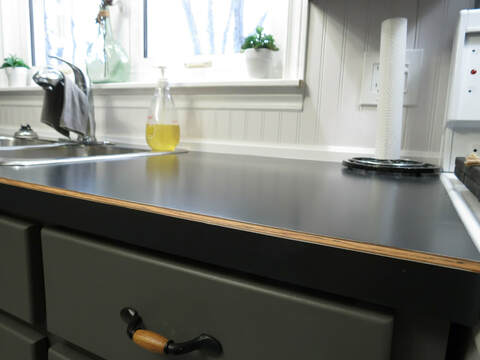
Common Mistakes to Avoid
When resurfacing laminate countertops, it’s important to avoid these common mistakes to ensure a successful and long-lasting result:
Skipping Surface Preparation: Failing to properly prepare the laminate surface before resurfacing can result in adhesion issues and a poor-quality finish. Ensure that the laminate surface is clean, dry, and free of grease, wax, or other contaminants before applying the resurfacing material.
Using the Wrong Resurfacing Material: Choosing the wrong resurfacing material for your countertops can lead to durability issues and dissatisfaction with the final result. Research different resurfacing options and consult with a professional to determine the best material for your specific needs and preferences.
Poor Application Technique: Improper application of the resurfacing material can result in an uneven or textured finish that detracts from the overall appearance of the countertops. Follow manufacturer instructions carefully and consider hiring a professional installer for best results.
Neglecting Maintenance: Failing to properly maintain and care for resurfaced laminate countertops can lead to premature wear and damage. Establish a regular cleaning and maintenance routine to keep the countertops looking their best and prolong their lifespan.
Ignoring Professional Advice: Attempting to resurface laminate countertops without consulting with a professional or experienced installer can result in costly mistakes and unsatisfactory results. Seek guidance from professionals in the industry to ensure a successful and professional-quality resurfacing project.
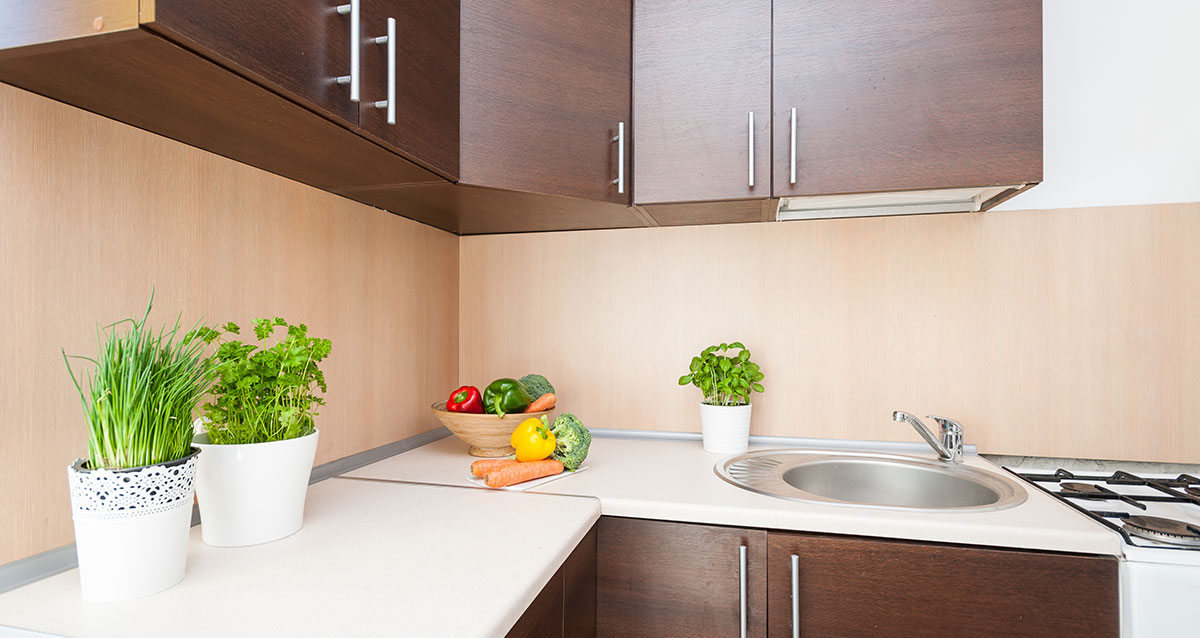
Can I resurface my laminate countertops myself, or should I hire a professional?
While DIY resurfacing kits are available, hiring a professional installer is recommended for best results, especially if you’re inexperienced or unsure about the process. A professional can ensure proper surface preparation, application technique, and finishing for a successful and long-lasting result.
How long does the resurfacing process take, and how much does it cost?
The time and cost of resurfacing laminate countertops can vary depending on factors such as the size of the countertops, the chosen resurfacing material, and the complexity of the project. Generally, resurfacing can be completed in a few days and costs significantly less than countertop replacement.
Will resurfacing my laminate countertops affect the resale value of my home?
Resurfacing laminate countertops can enhance the aesthetic appeal and value of your home by providing an updated and modern look to the kitchen. While it may not increase the resale value as much as premium countertop materials like granite or quartz, it can still make a positive impression on potential buyers.
Can I resurface countertops with visible damage or defects?
It’s important to address any visible damage or defects in the laminate countertops before resurfacing to ensure a smooth and even finish. Repair any chips, cracks, or delamination in the laminate surface before applying the resurfacing material for best results.
How long will resurfaced laminate countertops last?
The lifespan of resurfaced laminate countertops can vary depending on factors such as the quality of the resurfacing material, the level of care and maintenance, and the amount of wear and tear they receive. With proper care and maintenance, resurfaced laminate countertops can last for many years and provide durable and attractive surfaces for your kitchen.

Refinishing Countertops and Do-It-Yourself Painting – Miracle Method Surface Refinishing Blog
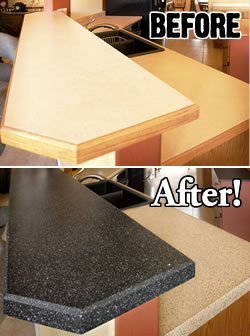
Countertop Refinishing – Resurfacing Resurface Specialist

How to Refinish Laminate Countertops How To Build It
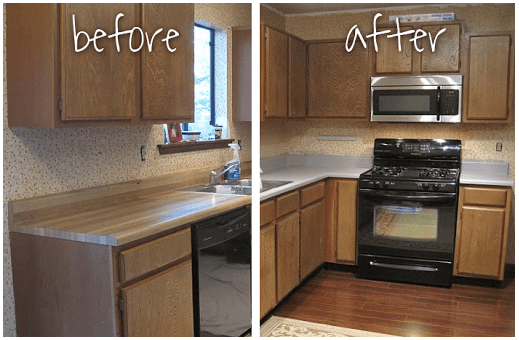
how to remove laminate countertop in kitchen

Renovations Ann’s Entitled Life
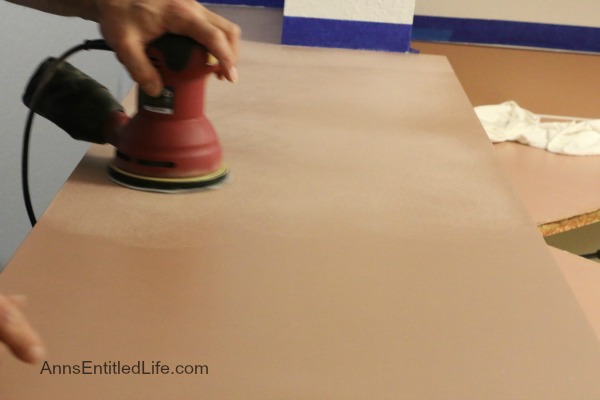
Can You Stain Laminate Cabinets – Kitchen Remodeling Ideas On A Small Budget

How We Finished Our Laminate Kitchen Countertop With Stone
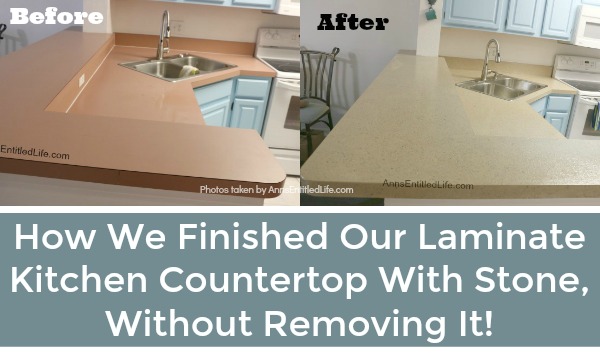
Gorgeous Marble Kitchen with Farmhouse Sink & Unique Island A’Bella Countertops

Related Posts:
- Affordable Kitchen Countertop Ideas
- Kitchen Design White Countertops
- Engineered Stone Kitchen Countertops
- Gray Tile Kitchen Countertop
- Green Kitchen Countertop Options
- Kitchen Countertop Decorating Ideas
- Solid Wood Kitchen Countertops
- Average Cost Of Quartz Kitchen Countertops
- Contemporary Kitchen Countertops
- Cheap Kitchen Island Countertops